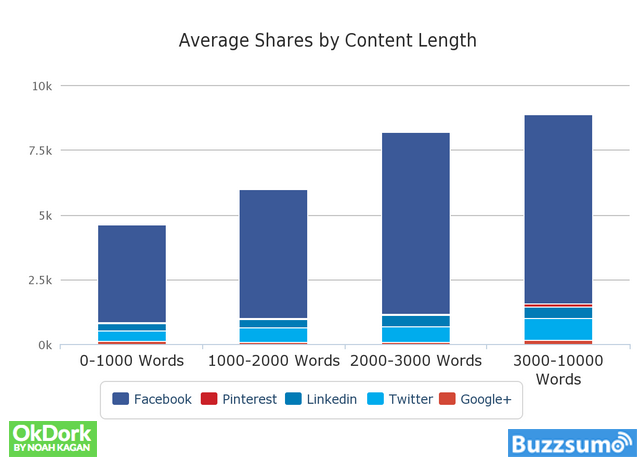Are you getting a bit hung up on SEO? Wondering as you write your blog posts if Google will approve? Agonising over keywords and whether your content could be penalised because you’ve overdosed on them? Unsure how to optimise your blog posts for SEO?
Thankfully there is a simple solution to your SEO dilemmas, and it all revolves around writing great content.
You see although Google makes its money through sponsored searches, PPC, this revenue only comes if people use this search engine (or any other), and people will only use a search engine if it delivers relevant, good quality results, not just sponsored ads.
So that’s all you have to do. Write great quality content.
For those of you who suspect there’s a little bit more to it than that; here are 5 simple SEO hacks for your blog writing.
Simple SEO hacks for great blog content
1. Write naturally
Stuffing a blog post with a specific keyword is not natural. It doesn’t read well and Google doesn’t like it. Back in the day this was a favourite trick of SEO experts but fortunately it will no longer help your page rank. Instead search engines are looking for a natural use of language, using a variety of relevant keywords rather than one specific ‘focus’ keyword. Therefore if you write in a ‘normal’ way about your chosen subject, without thinking too much about keywords and SEO, you’ll create the kind of content Google favour.
Think also about your poor readers whose ability to read your content will also affect your page rank. If they can’t read your content because it’s full of keywords and doesn’t read well, they’ll bounce.
Bounce rates: Anecdotally I’m hearing that bounce rates are one of the factors that Google is using to determine ranking. If you have Google analytics you’ll know that ‘bounce rate’ refers to the percentage of people who arrive on your page and leave without visiting any others. In itself this isn’t necessary bad. Perhaps your readers have found all the information they require and have picked up the phone and called you. Or jumped in the car to visit your shop. However, I’ve also been told by reliable sources that Google is measuring the amount of time someone spends on that page: too short and it’s deemed as not being relevant. Therefore not only do you ideally want to persuade visitors to visit more than one page, but also spend time on each page.
2. Write quality content
If you’re going to write a blog post sharing your top tips, explaining how to do something, or providing some food for thought on a particular subject, make sure you’re giving readers high quality content. Don’t ‘teach them to suck eggs’, or fob them off with wishy-washy advice, give them something meaty to get to grips with.
If you think a blog is just a tool for SEO, think again.
Your company blog should never just be about SEO; it’s also about generating leads and converting those leads into prospects and customers. Focus your blog efforts on your audience, not on search engines, and by doing so you will create content that gets read.
Providing good quality content results in actions. Readers may visit other areas of your website having been convinced that you know what you’re talking about. Or they might click on links within your content which demonstrates you’re blog writing is relevant and interesting. Both these factors will help your SEO.
3. Create longer blog posts
Quality content is also likely to be lengthy, and this is also a good thing for SEO for two reasons:
- More relevant keywords: The longer your post the more keywords used. If you only write 200 words it’s going to be very hard to use keywords in any quantity in a nature way. But if you write 1500 + words, your blog post is going to contain plenty of material for Google to analysis for relevancy.
- Dwell time: Google also pays attention to the amount of time visitors spend on your page when coming to it from search results. If you only write a few lines this won’t be for long and ‘scrolling’ action is another factor that some SEO experts believe Google use to rank pages. This means if your content can be viewed without scrolling down the page, it might be losing out.
As well as being chocker-block full of keywords and keeping your audience engaged for longer, what other benefits do longer posts deliver? Well, unless you’re an expert waffler they will also be full of really useful content that other people will want to link to. Guess what? Links from other websites, especially if they have a high page rank, help your SEO.
If you create the definitive blog post on your specialist subject you should be able to attract links from other people’s content sharing your blog post. For example, if you want the complete list of Google’s ranking factors you should visit this site. I may know a bit about SEO and a lot more about blogging but I’m not planning to create a blog on this very specific subject so instead I’ll link to it. Hopefully someone else will consider this post worthy of being linked to and help boost my page rank in this way.
You can also be proactive and ask people to link to your content. First identify content that you can improve on, other blog posts on your specialist subject that rank well in SERPs. Using tools like semrush.com or adrefs.com, find out who’s linking to this content. Draw up a list of the most relevant websites to target, those you would like a link from, and share your content with them. How?
- Write the definitive post on content they’ve already linked to, improving, updating, adding more detail and making it longer.
- Contact the site saying that you noticed that they linked to a particular post and that they might be interested in your updated version. Chances are these site owners will be more than happy to link to better and more relevant content – how can they refuse?!
Longer blog posts also get more shares on social media. More shares equals more visits to your blog and company website. A study from Buzzsumo shows just how many more…

This supports the point above about linking to other content; people want to share well-researched, in depth content that they wouldn’t write themselves. If this is your specialist area, do it for them.
A final word on blog length…
Blog writing is always a balancing act between writing content that helps SEO and writing content for your target audience. Your target audience should always be your priority; after all if you write for SEO and drive visitors to your site who don’t find what they’re looking for it’s all a pointless exercise. Therefore if your target audience is not going to engage with long, detailed blog posts – don’t do it.
4. Make sure your website is responsive
More than half of web traffic now comes from mobile devices and Google gives mobile-friendly sites priority in SERPs. Therefore your website must be responsive, i.e. it scales to fit the device it’s being viewed on.
However that’s not enough. Your site might scale to fit but can visitors really use it effectively? Check out how your blog posts display on different devices and introduce formatting in your posts to make it easy for visitors to read your content and navigate around your site.
Short paragraphs, photos, bullet points and headers can all help readers digest your content and stay on your post / website for longer. User experience is essential, you may have written a seminal blog post but if your audience finds it difficult to read on their device it won’t get read.
5. Write, publish, repeat
Search engines are hungry for fresh content, and your audience is too. One lonely blog post on your chosen subject thrown into a pot of over 2 million blog posts published every day is not going to make a huge impact.
Instead a consistent approach to blogging is required, publishing posts regularly on your area of expertise, and addressing the subjects and keywords your audience search for.
The more you blog the better. But it needs to be quality content otherwise you’re just creating spam, no good for SEO or your target customers. For most organisations your ability to blog regularly will be capped by available resources: time, expertise and money. Therefore it’s important to set yourself a realistic schedule, one you can stick to. Blogging once per month is not going to have a huge impact on your SEO however you could still generate 70% more leads than companies that don’t blog at all.
If you can double your blog content, you can also double your leads.
These leads are not necessarily coming from search, if you’re new to blogging they’ll be predominately coming from links elsewhere: social media updates sharing your post, links in newsletters, from your email signature etc. Wherever visits to your blog are coming from, provided they’re quality leads, is all good. Websites with lots of direct traffic and repeat traffic may also benefit from a Google ranking boost.
The above five points all point to one thing – write for your audience, not for search engines. There are tactics you can use to increase your page rank, but ultimately it has to be about providing your target customers with the content they want.





